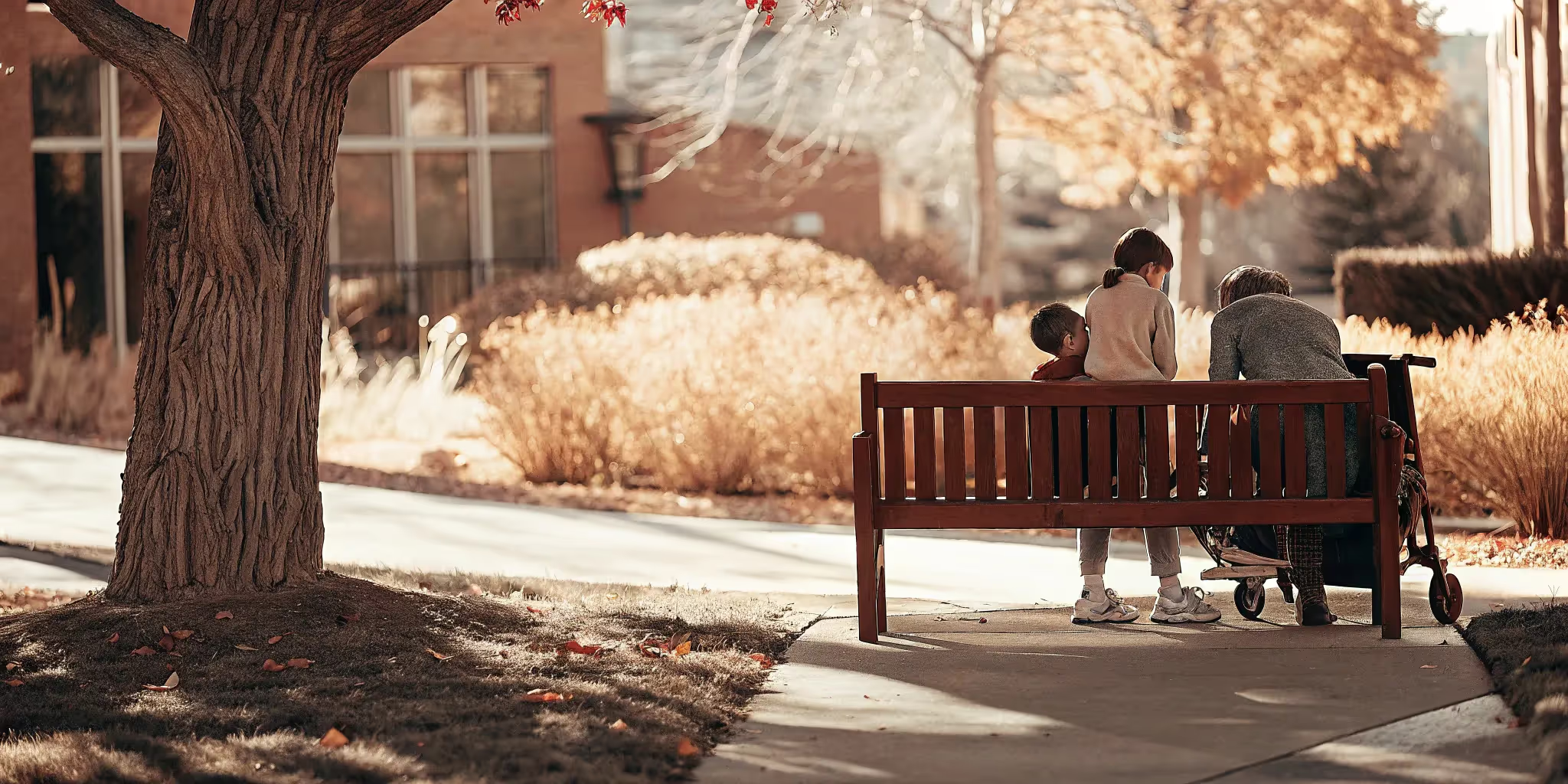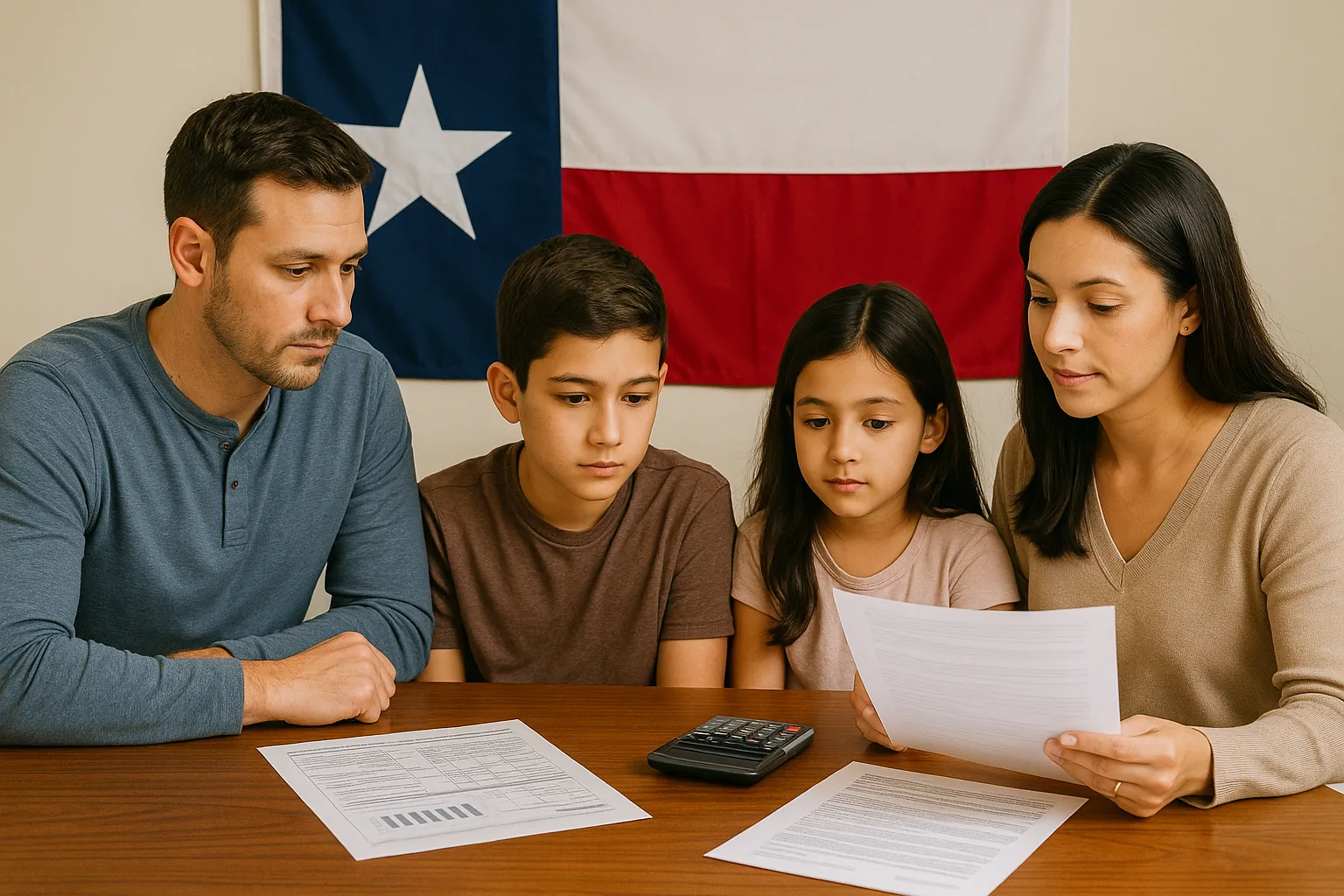Your Guide to Autism Resources in Loveland, CO

Effective autism care is never a solo effort; it’s a team sport. This team includes therapists, educators, community leaders, and most importantly, the family. As a BCBA, you are often the architect of this support network, helping families find the right players who will champion their child’s growth. To help you build a strong roster, we’ve created this guide to the top autism resources Loveland, Colorado has available. From ABA centers and speech therapists to school advocates and parent support groups, this is your playbook for assembling a comprehensive and collaborative care team that works together for your client’s success.
Key Takeaways
- Make a Formal Diagnosis the First Step: A diagnosis is essential for accessing insurance benefits, specialized therapies, and educational support through an IEP. Help families prepare for this process to ensure they can get the necessary resources for their child right from the start.
- Assemble a Comprehensive Care Team: A child's progress is supported by a team of specialists working together. Combine ABA with other therapies like speech and OT, and collaborate closely with the school to develop a strong, effective IEP.
- Look Beyond Clinical Care: A strong support system is just as important as therapy. Connect families with local resources like parent groups, respite care, and inclusive community activities to support their well-being and help them build a network they can rely on.
Your Guide to Autism Services in Loveland
When a family begins their journey with an autism diagnosis, the first step is often finding the right professional services. For BCBAs, guiding families through this initial phase is a critical part of building a strong foundation for care. Loveland offers a supportive network of resources, but knowing where to start can feel overwhelming. This guide is designed to help you and the families you work with find the essential services needed to get started, from securing a diagnosis to understanding the financial support available.
Think of this as your roadmap to the foundational pillars of autism support in the Loveland area. We'll walk through the key types of services that families typically need first. This includes identifying centers that can provide a formal diagnosis, understanding the insurance landscape in Colorado, tapping into crucial early intervention programs, and demystifying the evaluation process. Having this information on hand allows you to empower families with the knowledge they need to make confident decisions and access the care their child deserves right from the beginning.
Diagnostic and Assessment Centers
A formal diagnosis is the gateway to accessing specialized educational resources, therapies, and insurance coverage. In Loveland, several centers are equipped to conduct comprehensive evaluations. For example, the Action Behavior Center provides ABA therapy and diagnostic services for children with autism. These centers use standardized assessment tools and clinical expertise to provide a clear and accurate diagnosis. As a BCBA, you can help families prepare for these appointments by explaining what to expect and gathering relevant developmental history, ensuring the assessment is as thorough as possible. A timely and accurate diagnosis is the first concrete step toward building an effective and personalized treatment plan for a child.
Insurance and Financial Aid
One of the biggest concerns for families is how to pay for essential services. Fortunately, Colorado has strong provisions in place to help. A state law requires most health insurance plans to cover the assessment, diagnosis, and treatment of autism spectrum disorders. This mandate significantly reduces the financial burden on families, making consistent, high-quality care more accessible. In addition to private insurance, coverage is also available through Colorado Medicaid (Health First Colorado) and TRICARE for military families. Helping families understand their benefits and what their plan covers is a vital part of your role, ensuring that financial stress doesn't become a barrier to a child’s progress.
Early Intervention Programs
For children from birth to three years old, the impact of early intervention cannot be overstated. These programs are designed to support the development of fundamental skills at the most critical time. Early intervention services focus on helping young children learn to communicate, walk, and interact with the world around them. In the Loveland area, families can connect with organizations like the Autism Society of Colorado and Soar Autism Center for resources and support. By connecting families with these programs, you help them build a strong foundation of skills that will support their child’s learning and development for years to come, setting the stage for future success in therapy and school.
The Evaluation Process
Understanding the path to a diagnosis can make the process much less intimidating for parents. The journey typically involves two main steps: a developmental screening and a comprehensive diagnostic evaluation. A Developmental Screening is a brief, informal check to see if a child is meeting key developmental milestones on time. If the screening indicates potential delays, the next step is a more in-depth evaluation. This comprehensive assessment is conducted by a specialist, like a developmental pediatrician or psychologist, who will use specific criteria to determine if a child meets the criteria for an autism diagnosis. Explaining this two-step process can help manage a family’s expectations and empower them as they move forward.
Find Professional Therapy in Loveland
Once you have a diagnosis, the next step is often building a team of therapists to support your client's development. Loveland offers a strong network of professionals specializing in various disciplines, from behavior analysis to speech and occupational therapy. Finding the right combination of services is key to creating a comprehensive and effective treatment plan. As a BCBA, knowing the local landscape of providers helps you make informed recommendations and collaborate more effectively with other clinicians. This ensures your clients receive well-rounded care that addresses their unique needs across different areas of life, from communication and social skills to daily routines and emotional well-being.
ABA Therapy Centers
Applied Behavior Analysis (ABA) is a cornerstone of therapy for many children with autism, and Loveland has excellent centers dedicated to this practice. For example, Action Behavior Center (ABC) focuses on helping children learn new skills, improve communication, and manage their emotions in a supportive environment. As a BCBA, you know that the goal of ABA is to create meaningful, positive changes in behavior. Finding a center that aligns with your client’s needs and your clinical approach is crucial for success. When vetting local centers, consider their staff-to-client ratios, the experience of their BCBAs and RBTs, and their approach to parent training and collaboration.
Speech and Language Services
Communication is a common challenge for children with autism, making speech therapy an essential service. Speech-language pathologists (SLPs) work to improve all aspects of communication, from verbal expression to understanding non-verbal cues. In Loveland, families can find support from providers like Aspen Speech Therapy and Attain SLB Services. These professionals can help children develop functional communication skills that allow them to express their wants and needs, build relationships, and engage more fully with the world around them. You can find a list of these and other providers in the Autism Resources guide from The Arc of Larimer County.
Occupational Therapy
Occupational therapy (OT) helps individuals develop the skills needed for daily living. For children with autism, this can include anything from fine motor skills for writing and dressing to sensory integration strategies for managing overwhelming environments. OTs focus on helping children participate in their "occupations"—the meaningful activities of everyday life. In Loveland, NoCo Pediatric OT, LLC offers specialized services tailored to the unique needs of children with autism. By working with an OT, a child can gain independence, improve their ability to self-regulate, and build confidence in their daily routines at home, school, and in the community.
Mental Health Support
Addressing mental health is a critical component of comprehensive autism care. Co-occurring conditions like anxiety and depression are common, and psychological assessments can provide clarity and direction for treatment. Counseling offers a safe space for children, teens, and adults to process their experiences and develop healthy coping strategies. Organizations such as the Colorado Center for Assessment and Counseling and Neuroeducational Assessment Services provide these vital services in the Loveland area. Integrating mental health support into a treatment plan ensures you are caring for the whole person, promoting emotional well-being alongside behavioral and developmental progress.
Physical Therapy
While often associated with injury recovery, physical therapy (PT) can also play an important role in supporting children with autism. Some children may face challenges with motor skills, balance, and coordination. A physical therapist can design activities and exercises to build strength, improve posture, and enhance gross motor abilities, which can boost a child's confidence in physical activities like playing at the park or participating in sports. While specific PT providers for autism aren't always listed separately, many comprehensive therapy centers in Colorado include it as part of a broader treatment plan. You can learn more about integrated services in this guide to autism benefits in Colorado.
Educational Support in Local Schools
Navigating the school system is a significant part of creating a comprehensive support plan for a child on the autism spectrum. As a BCBA, you play a crucial role in helping families understand their rights and the resources available to them. In Loveland, the Thompson School District provides a framework for special education services, but knowing how to effectively collaborate with the school can make all the difference in a child’s academic and social success. The key is to approach the school as a partner, armed with clear documentation and a collaborative spirit to build the best possible educational environment for your client.
Thompson School District Programs
Public schools in Loveland are legally required to provide special education services for children with disabilities, including autism. The Thompson School District offers programs designed to support students with diverse learning needs. The foundation of these services is the Individualized Education Program (IEP), which is tailored to each child's specific requirements. This plan outlines the accommodations, modifications, and specialized instruction the school will provide to ensure the student can access the curriculum and make meaningful progress. It’s a collaborative document that involves parents, teachers, school administrators, and specialists, ensuring everyone is aligned on the child's goals and the strategies to achieve them.
Develop an IEP
An Individualized Education Program (IEP) is a legally binding document that maps out the special education instruction, supports, and services a student will receive. It’s developed by a team and is designed to meet a child's unique educational needs. As a BCBA, you can help families prepare for IEP meetings by organizing data on the child's progress, defining clear and measurable goals, and suggesting evidence-based strategies that can be implemented in the classroom. The IEP process is an opportunity to advocate for your client and ensure their educational journey is supported by a solid, well-thought-out plan that addresses both academic and functional skills.
School-Based Resources
Beyond the direct services offered by the school district, there are other organizations that can provide invaluable support. The Autism Society of Colorado is a fantastic resource for families and professionals alike. They work to connect people with the information and support they need, offering a sense of community and a wealth of knowledge. Encouraging families to connect with local chapters can provide them with an additional layer of support, from parent networking groups to workshops on navigating the special education system. These community resources can complement the services provided by the school and help create a more holistic support network for the child.
Plan for School Transitions
Transitions between schools—from elementary to middle school, or middle to high school—can be particularly challenging for students on the spectrum. Proactive transition planning is a critical component of the IEP process. This involves setting goals and creating a plan to prepare the student for the new environment, different academic expectations, and new social dynamics. This might include visiting the new school, meeting teachers ahead of time, or working on specific skills like organization or self-advocacy. By addressing these transitions well in advance, you can help reduce anxiety and set your client up for a successful and smooth adjustment to the next stage of their education.
Connect with Family and Community Support
A well-rounded care plan extends beyond therapy sessions and school support. For families navigating an autism diagnosis, finding a community that truly understands their day-to-day reality is just as important. This network provides emotional reinforcement, practical advice, and a sense of belonging that can make all the difference. As a BCBA, you can be an incredible resource by connecting families with local groups and services that offer this vital support.
Encouraging families to build these connections helps them create a sustainable, resilient support system. Whether it’s a parent group where they can share experiences without judgment, respite care that provides a much-needed break, or programs designed for siblings, these resources address the needs of the entire family unit. When caregivers and siblings feel supported, it creates a more positive and stable environment for everyone. Guiding families toward these community lifelines is a powerful way to enhance the impact of your clinical work and support their long-term well-being.
Parent Support Groups
Parenting can feel isolating at times, and this is especially true for parents of autistic children. Support groups offer a safe and understanding space where they can connect with others who are on a similar path. Here, parents can share triumphs, ask for advice on challenges, and simply feel heard by people who get it. The Autism Society of Colorado (ASC) is a fantastic starting point, offering various support groups across the state. These gatherings provide not just emotional encouragement but also a hub for sharing local resources and building lasting friendships.
Respite Care
Every caregiver needs a chance to rest and recharge. Respite care provides temporary relief for primary caregivers, allowing them to take a break, run errands, or simply have a moment to themselves. This isn't a luxury; it's a crucial component of preventing burnout and maintaining family well-being. Fortunately, Colorado's Autism Insurance Law requires many health insurance plans to cover services for autism spectrum disorders, which can include respite care. Families can learn more by exploring a guide to autism benefits to see what their plan covers and how to access this essential support.
Sibling Support Programs
Siblings of autistic children have their own unique experiences, emotions, and questions. Sibling support programs give them a dedicated space to connect with peers who understand their family dynamics. These programs help siblings feel seen and validated, offering them tools to process their feelings and their relationship with their autistic sibling. The Autism Society of Colorado is committed to helping the entire family thrive and offers programs that focus on supporting siblings. It’s a wonderful way to ensure every member of the family feels supported and understood.
Crisis Intervention
Even with the best plans in place, challenging situations and crises can arise. Knowing where to turn for immediate help is essential for families. In moments of intense need, organizations are ready to provide guidance and support to help manage difficult circumstances. In Colorado, families can reach out to groups like the Autism Society of Colorado and Soar Autism Center, which offer critical resources and support during a crisis. Having these contacts on hand can provide families with peace of mind, knowing that professional help is available when they need it most.
Local Support Organizations
Beyond statewide organizations, local groups offer a wealth of information and tailored support for the community. For families in Loveland and the surrounding area, The Arc of Larimer County is an invaluable resource. They provide a comprehensive guide that lists a wide range of services and support options for individuals with autism and other developmental disabilities. Directing families to their list of autism resources can help them quickly find everything from therapy providers to recreational programs right in their own backyard, making it easier to build a strong, local support network.
Explore Specialized Programs and Activities
Therapy and school are foundational, but building a rich, fulfilling life happens outside the clinic and classroom, too. Specialized programs and activities give individuals the chance to explore their interests, develop hobbies, and build friendships in a supportive environment. These settings are perfect for practicing social skills in a natural way, all while having fun and building confidence. From structured groups focused on specific skills to recreational events that are all about connection, Loveland and the surrounding communities offer a variety of programs that support holistic development. As a BCBA, connecting families with these resources can be a game-changer, helping your clients generalize skills and find a true sense of belonging within their community. These activities aren't just add-ons; they are essential pieces of the puzzle for a well-rounded life. They provide the context where learned skills become lived experiences, reinforcing progress made in therapy and creating lasting positive change.
Social Skills Groups
Navigating social situations can be challenging, and social skills groups provide a safe, structured space to learn and practice. These groups are more than just lessons in conversation; they are about building genuine connections with peers who have similar experiences. The Autism Society of Colorado (ASC) offers support groups designed to be a safe harbor where individuals can discuss their experiences, share triumphs, and work through challenges together. By connecting people with shared understanding, these groups help reduce feelings of isolation and build a supportive peer network that can last a lifetime. They empower participants to build confidence in their ability to interact with the world around them.
Recreational Programs
Everyone deserves to have fun, and recreational programs create opportunities for joy and community connection. These activities offer a low-pressure environment for social interaction while engaging in enjoyable pastimes. The ASC also hosts a variety of local events that bring autistic individuals and their families together for fun and fellowship. Whether it's a day at the park, a sensory-friendly movie screening, or a community picnic, these gatherings foster a strong sense of community. They provide a space where families can relax, share experiences, and build a support system with others who understand their journey, all while making positive memories.
Art and Music Therapy
For many individuals, art and music are powerful forms of expression that go beyond words. Art and music therapy use creative processes to help achieve developmental goals in a fun and engaging way. These therapeutic approaches can support everything from cognitive and motor skills to speech and emotional regulation. In Loveland, providers like Elevate Music Therapy Services use music to help clients reach their full potential. Creative therapies offer an alternative and often highly effective way to communicate and process emotions. You can find more information on local providers in The Arc of Larimer County’s autism resource guide.
Summer Camps and Events
Summer camps are a rite of passage that can build independence, resilience, and lifelong friendships. For autistic individuals, a camp designed with their needs in mind can be a transformative experience. Organizations like Easterseals offer summer camps and events tailored for individuals with disabilities, providing a safe and supportive environment to try new activities and practice social skills. These programs focus on helping participants develop independence and confidence away from home. The structured fun of camp life offers a unique opportunity for growth and making memories. You can explore various camps and events through local resource directories.
Inclusive Community Activities
Ultimately, the goal is for every individual to feel like a valued member of their community. Inclusive community activities are designed to break down barriers and promote meaningful participation for everyone. Throughout Colorado, you can find a wide range of services and programs that support individuals with autism and their families across different life stages. This might include adaptive sports leagues, sensory-friendly hours at museums, or volunteer opportunities. These initiatives are crucial for fostering a culture of acceptance and ensuring that autistic individuals have every opportunity to engage with and contribute to their local community.
Access Essential Support Services
Beyond therapy and school, daily life requires a network of practical support. Getting from place to place, using the right technology, and knowing who to call in an emergency are all crucial pieces of the puzzle. For families in Loveland, several services are available to make everyday life more manageable. These resources help individuals with autism gain independence and ensure families have the logistical and administrative support they need to coordinate care effectively.
Transportation
Getting around Loveland is made easier with services from the City of Loveland Transit (COLT). COLT provides fixed-route transit and paratransit (Dial-A-Ride) services Monday through Saturday, which is a huge help for appointments, school, and community activities. For individuals with disabilities, the ADA Annual Bus Pass offers a reduced-cost option that supports independence and mobility. Having reliable transportation is fundamental, and these local services are designed to be accessible for those who need them most.
Assistive Technology
While Loveland doesn't have a dedicated assistive technology center, that doesn't mean support is out of reach. Your best first step is often to connect with local schools and special education programs. These teams are typically well-versed in the tools that can help with communication, learning, and daily tasks. They can guide you to the right resources, whether it's a specific app, a communication device, or other technology. Don't hesitate to ask your child's school-based team for recommendations and support in this area.
Emergency Services
Thinking about emergencies is stressful, but a little preparation goes a long way. It’s a great idea to create an emergency plan that includes key information about your loved one’s condition, communication preferences, and any accommodations they might need in a crisis. Loveland’s emergency responders and local law enforcement often participate in training to better understand and assist individuals with autism. Having a clear plan ready can help you communicate effectively and ensure your family member gets the right support when it matters most.
Legal and Advocacy Support
Understanding your rights and the services you're entitled to can feel overwhelming. Connecting with local disability rights and advocacy organizations can provide much-needed clarity and support. These groups offer guidance on everything from educational rights under the Individuals with Disabilities Education Act (IDEA) to legal protections under the Americans with Disabilities Act (ADA). Organizations like The Arc of Larimer County can be an invaluable resource for staying informed and advocating effectively for your family.
Care Coordination
Juggling multiple appointments, therapies, and school services is a huge task. Care coordination helps bring all the pieces together. Local agencies can connect you to a wide range of resources, streamlining the process and reducing stress. For example, SAINT Volunteer Transportation not only provides rides but also helps link families with healthcare, educational support, and other community services. This kind of holistic support ensures you’re not working through the system alone and can help improve your family’s overall quality of life.
How to Build Your Care Team
Assembling a dedicated care team is one of the most important steps in supporting a child with autism. This team often includes a mix of therapists, educators, medical professionals, and, most importantly, the family. A strong, collaborative team ensures that everyone is working toward the same goals and that the child receives consistent, comprehensive support across all environments. Guiding families through this process helps them find the right people who will champion their child’s growth and well-being.
Choose the Right Provider
Finding the right provider starts with understanding a child’s unique needs and finding a team that can meet them. Look for centers that specialize in the specific services you’re seeking, like Applied Behavior Analysis (ABA) therapy. For example, some centers focus on providing tailored support for children with autism through individualized care plans. The goal is to find a provider whose philosophy and approach align with your family’s values and your child’s personality. A good fit makes all the difference in creating a positive and effective therapeutic relationship.
Questions to Ask
Encourage families to come prepared with questions when meeting potential providers. It’s essential to do your homework and research each service to make sure it’s the right choice.
Some key questions to ask include:
- What is your approach to therapy and goal setting?
- How do you involve parents and caregivers in the process?
- How is progress measured and communicated?
- What training and credentials do your staff members have?
Asking direct questions helps families gain clarity and confidence in their decision, ensuring they partner with a provider they can trust.
Build Your Care Team
Once providers are chosen, the focus shifts to building a cohesive and collaborative team. This is about more than just coordinating appointments; it’s about fostering open communication and a shared vision for the child’s success. Effective teams often feature professionals, like master’s-level therapists (BCBAs), who provide one-on-one attention and work closely with families to create and adjust personalized goals. Remember, parents are the experts on their child and are the most critical members of the care team. Consistent collaboration ensures everyone is aligned and moving in the same direction.
Provider Directory
Finding qualified providers can feel overwhelming, but you don’t have to start from scratch. Local organizations often compile lists of trusted professionals and services. For families in Northern Colorado, The Arc of Larimer County offers a comprehensive resource guide that can be an excellent starting point. Their directory includes a wide range of support services available in Fort Collins, Loveland, Windsor, and Greeley. Using a curated directory can save time and connect you with vetted resources in your community, making it easier to find the right specialists for your team.
Related Articles
- Complete Guide to Autism Resources in Fort Collins, CO - Alpaca Health
- Top Autism Providers in Fort Collins, Colorado - Alpaca Health
- Complete Guide to Autism Resources in Denver, Colorado
- Guide to Autism Resources in Aurora, Colorado - Alpaca Health
- Guide to Autism Resources in Thornton, Colorado - Alpaca Health
Frequently Asked Questions
What's the very first step for a family concerned about their child's development? The journey typically begins with a two-step evaluation process. First, a developmental screening serves as a quick check to see if a child is meeting their milestones. If that screening suggests potential delays, the next step is a comprehensive diagnostic evaluation with a specialist. Guiding a family through this process helps them secure a formal diagnosis, which is the key to accessing insurance coverage and specialized services.
How can I help families manage the cost of autism services in Colorado? One of the most reassuring things you can share with families is that Colorado has a state law requiring most private health insurance plans to cover the diagnosis and treatment of autism. This significantly eases the financial strain. For families who qualify, Colorado Medicaid (Health First Colorado) also provides coverage. Your role can be to help them understand their specific benefits and connect them with the right resources to navigate their plan.
Besides ABA, what other therapies are important for a well-rounded treatment plan? While ABA is a core component of care, a truly comprehensive plan often includes other disciplines. Speech therapy is vital for building communication skills, while occupational therapy helps with daily living activities and sensory needs. It's also important to consider mental health support, as counseling can help children and teens develop healthy coping strategies. These therapies work together to support the whole child.
What is the most effective way to partner with the Thompson School District for a client's IEP? The key is to approach the school as a collaborative partner. You can help families prepare for IEP meetings by organizing clear data on their child's progress and defining measurable goals. When you and the family come to the table with a cooperative spirit and a well-documented plan, you can work with the school team to build an effective educational program that truly supports your client's needs in the classroom.
My client's family is feeling isolated. Where can they find community support? Connecting with others who have similar experiences can be incredibly powerful. You can direct families to organizations like the Autism Society of Colorado, which offers parent support groups and programs for siblings. These groups provide a safe space to share advice and find emotional reinforcement. Recreational programs and local community events are also great for building a network and reminding families that they are not alone.
High Quality, Local ABA
If you are ready to partner with a local BCBA and receive the highest quality of care, reach out today!













